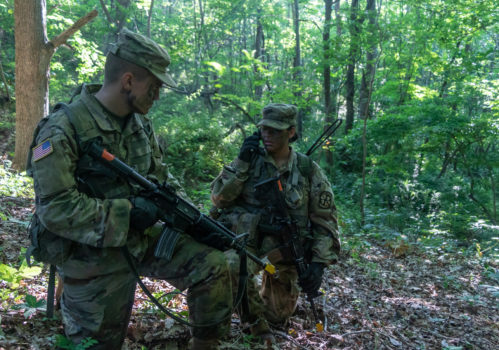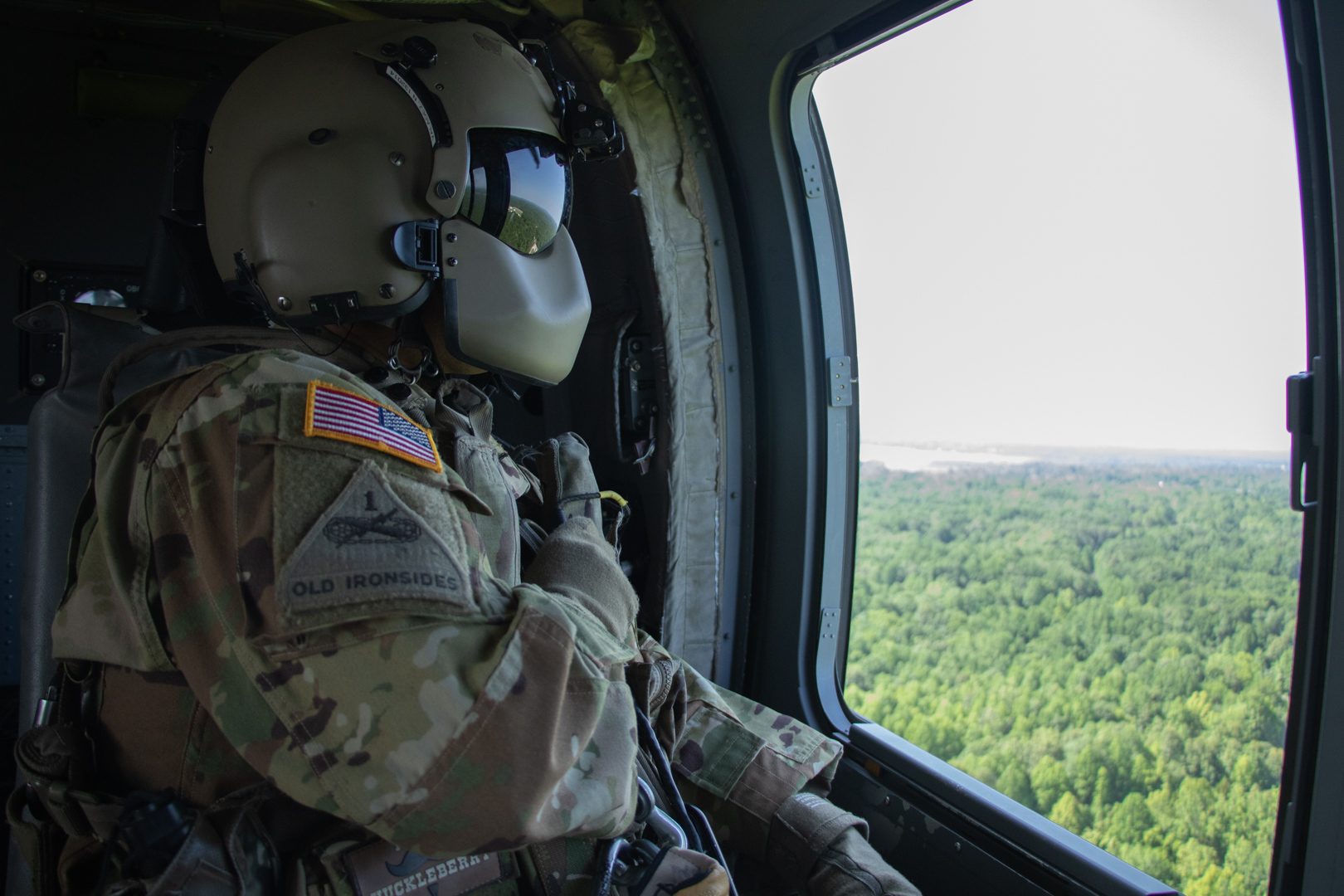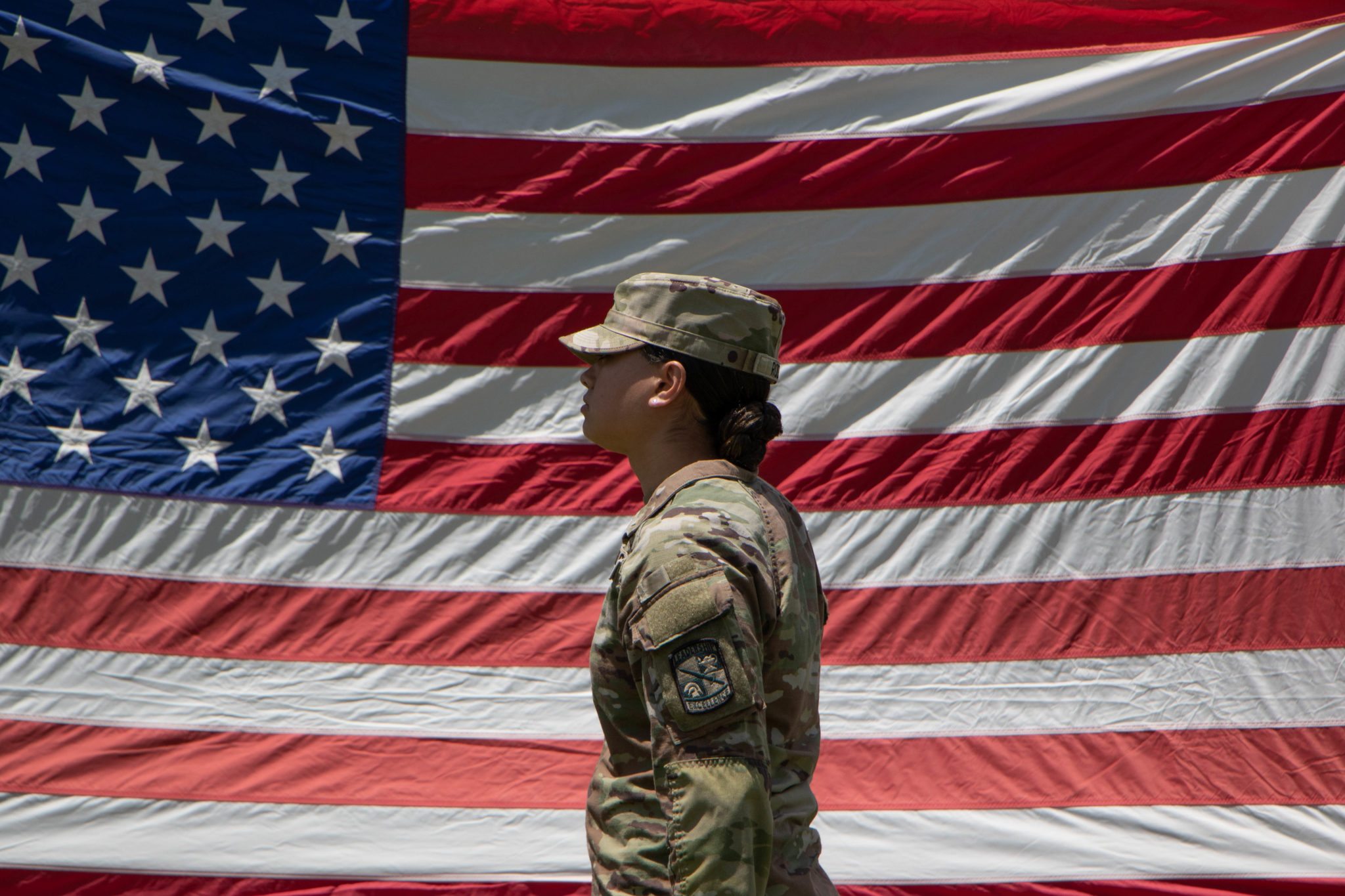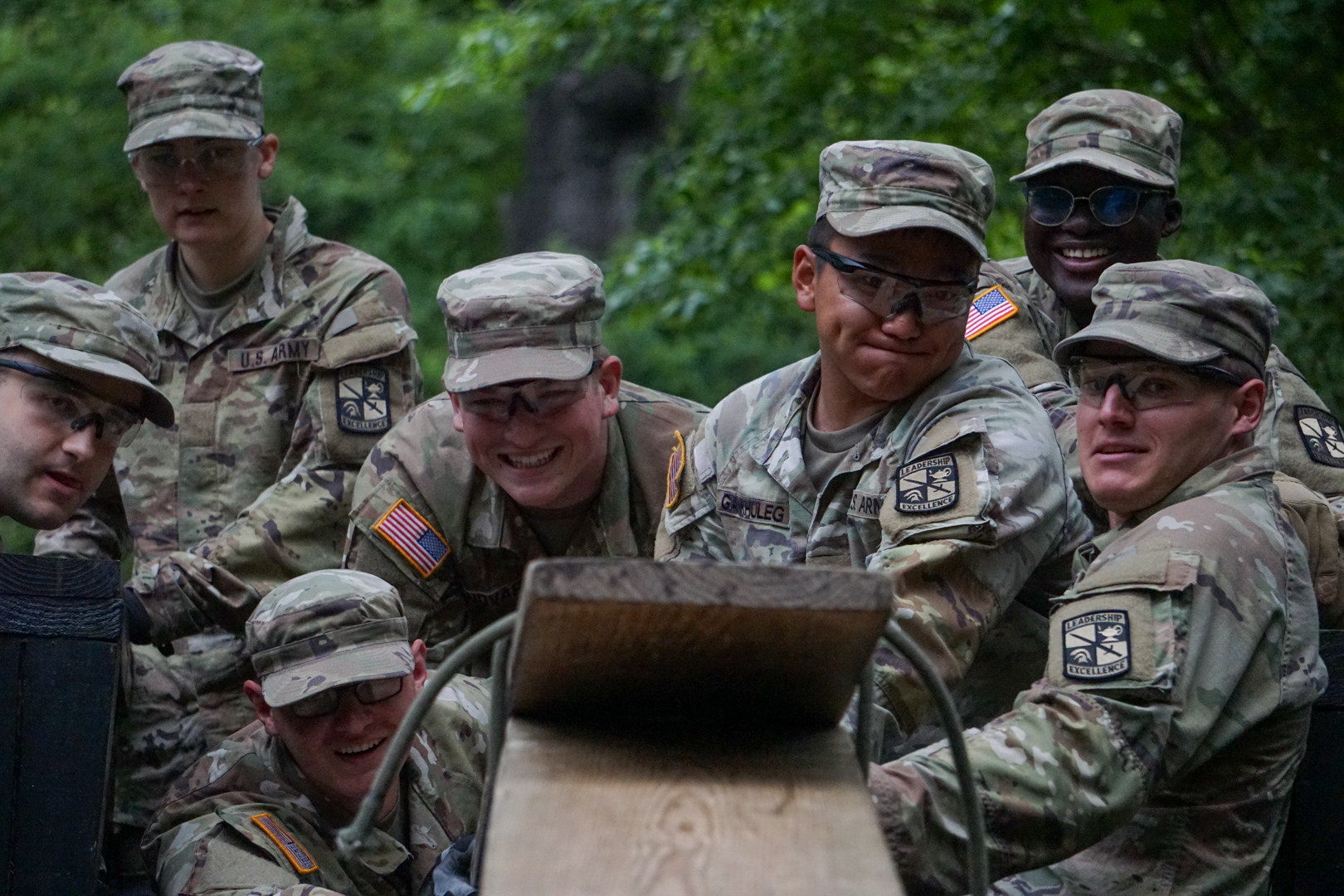From crawling, to walking, to running, 1st Regiment, Advanced Camp, completed its Cadet led run through of missions during Field Training Exercise II in Fort Knox, Ky., on June 22, 2022.
According to Master Sgt. Alan Roche, a senior military instructor with U.S. Army Cadet Command, the exercise was last requirement Cadets fulfilled for their commission. He added it is more difficult than past training exercises because it’s meant to be a final test of whether a Cadet has what it takes to become an officer.
“We’re gonna make them tired, we’re gonna make them hungry, and we’re gonna make them sore,” said the Florida Tech Reserve Officer Training Corps instructor.
After completing each mission, the Cadets took turns in different leadership positions including platoon leader, platoon sergeant, and squad leader.
The platoon leader during the recon mission was 18-year-old Cadet William Pettit.

Pettit received a two year early commission scholarship that led him to Georgia Military College where he currently studies computer science. However, he plans to transition to a nuclear engineering degree in his next year.
Pettit said he joined the ROTC program for three reasons: to serve his country, to follow in his father’s footsteps, and to find a way to go to college while building his character. He said the ROTC program offered him that opportunity.
Though he is younger than most of his fellow Cadets, Pettit was surprised the age difference was more of a joke than a major identifier.
The reaction he got was simply, “hey you’re young, that’s kinda funny,” he said.
“I do feel like some people don’t think I’m up to the task,” he added, “but at the same time, they trust me enough to give me the chance to go on missions.”
At the end of the day, Pettit led the recon mission successfully and completed his last blue card requirement to commission — being a platoon leader.
After days in the woods together, Pettit felt the camaraderie built over time helped the platoon grow.
“I think it’s a really great development of each individual person, as well as the organization of the Army itself. To be able to be here, out in the field for 12 days, and really learn to cooperate with each other,” he said.
Though Pettit thought the overall mission went well, looking back, he said the planning stage was what they did best, but he felt they could have used more refinement when it came to the execution. The platoon was hit with a simulated attack from the objective area they were running reconnoissance on which was not expected.
“Not everything will be as you expect it to be,” said Pettit, “There will be times where the terrain doesn’t exactly look the same as what is on the map. Adjusting your plans to whatever life throws at you is a very important skill to have,” he finished.




